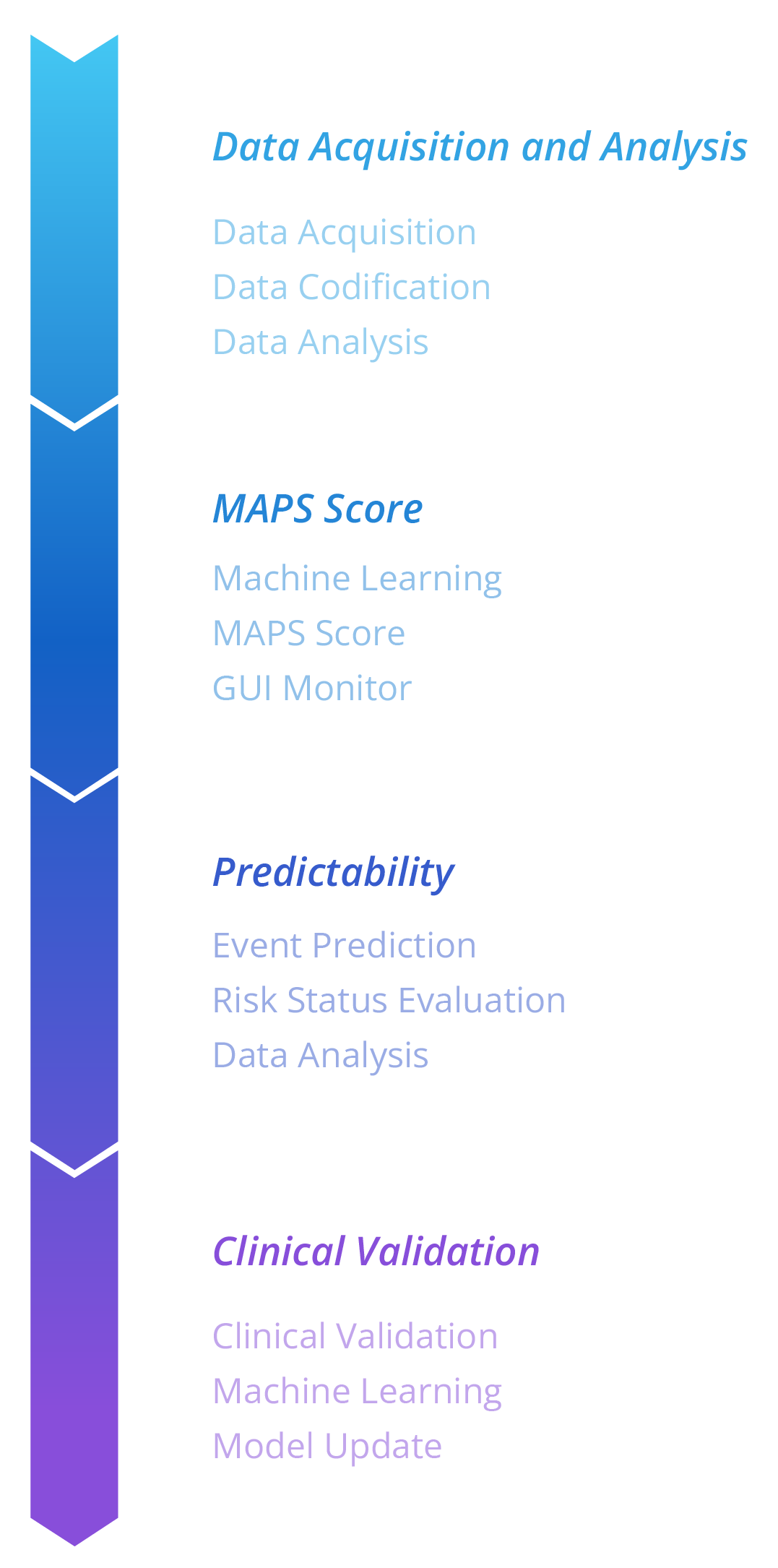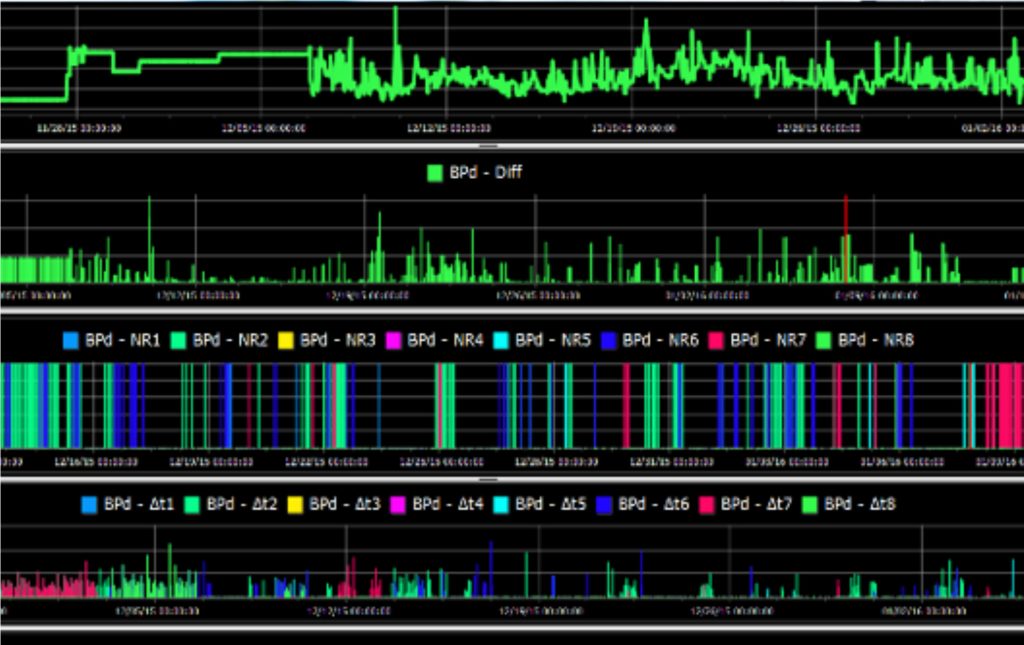products /
MAPS
Medical Advanced Predictability Suite
Empowering Clinical Decision-Making through AI-Driven Insights
In the dynamic world of healthcare, the precision and timeliness of clinical decisions are pivotal for patient outcomes.
With this understanding, we introduce the Medical Advanced Predictability Suite (MAPS), an innovative collection of tools that revolutionizes healthcare delivery and decision-making support. MAPS integrates the advanced capabilities of Business Intelligence (BI) and Artificial Intelligence (AI) to provide a proactive, intelligent dashboard that not only identifies but anticipates clinical events, ensuring compliance with medical guidelines and facilitating early detection of chronic and degenerative diseases.
Our approach
The Synergy of AI and Clinical Decision Support
Our expertise in blending AI with clinical decision-making processes positions MAPS as a transformative force in healthcare analytics. Utilizing claims and electronic health records, MAPS applies our proprietary algorithms and deep learning models to handle diverse data inputs efficiently. This flexibility ensures MAPS’s relevance across different healthcare environments.
Explainability: At the Core of MAPS
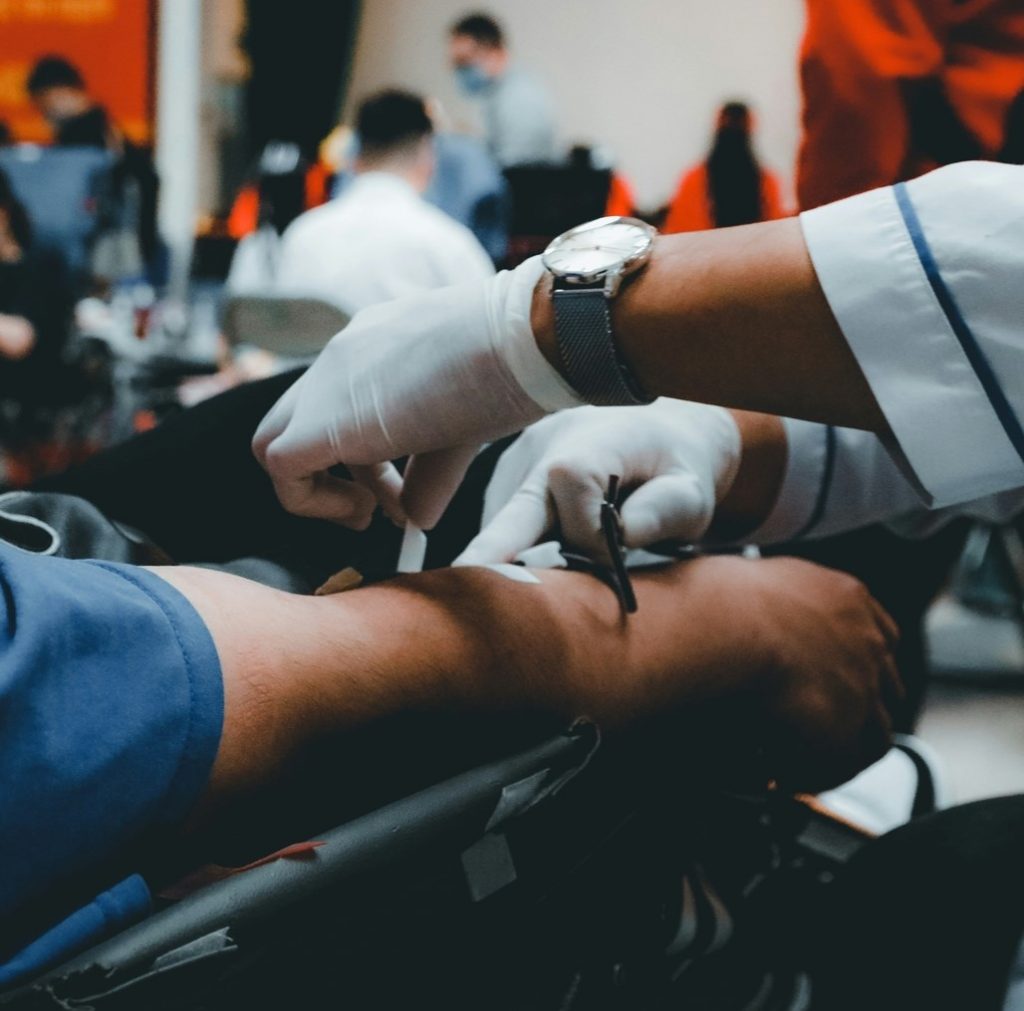

Transparency and understanding in AI-driven predictions are critical.
MAPS distinguishes itself by offering:
Confidence Indicators
Accompanying each prediction with a reliability score, increasing trust in the AI system.
Explanation Mechanism
Our AI models are transparent, providing clear insights into their predictive logic. This clarity is vital for clinician adoption and meets regulatory standards, effectively bridging the gap between AI innovations and clinical application.
The evolutive nature of MAPS
Continuous Monitoring and Enhancement
MAPS evolves by learning from its performance, ensuring accuracy and relevance.
Bias Detection and Mitigation
It proactively identifies and corrects biases, promoting equitable healthcare outcomes.
Adaptive Retraining
MAPS undergoes periodic updates to stay ahead of healthcare advancements, tailoring its predictions to specific patient groups or healthcare settings.

A suite of Business Intelligence and Artificial Intelligence solutions allowing
take advanced decisions through an intelligent dashboard
clinical events detection to improve workflows
detection of chronic and degenerative disease deterioration
features
Real-time alerts for critical clinical events, enhancing proactive healthcare interventions.
Advanced predictive models for managing disease progression and anticipating patient care needs.
Identifies patients at risk of complex healthcare journeys, enabling targeted, effective interventions.
Real Time Alerts
Early Warning Scores
Clinical Guidelines Matching
- Clinical predictions
- explainable
Human in the loop approaches
Global and Local Explanations
Confidence indication for every prediction
Disease Progression Forecasting
Disease Pathways Identification
Patient Complexity Index
- disease management
- evolutive
Post-deployment Monitoring
Bias detecting and debiasing
Retraining Capabilities
Impact and benefits
MAPS transcends being merely a technological tool; it is a pledge towards enhancing patient safety and the efficiency of healthcare delivery. By offering predictive insights and actionable intelligence, MAPS streamlines healthcare operations and promotes a more patient-centered care model. With MAPS, healthcare providers can:
- enhance operational workflows
- Reduce Healthcare costs
- Improve patient outcomes with informed, timely decisions
As healthcare continues to evolve, MAPS stands as a testament to innovation and a future where decisions are more informed, precise, and centered on patient well-being.
Our commitment is to merge AI with clinical insights, shaping a future where every clinical decision enhances patient care and outcomes.
MAPS Case studies
MAPS (Patient Deterioration Warning Score) "Medical Alert Preventive Score” 170K pediatric patients
The Medical Alert Preventive Score (MAPS) is a tool designed to identify and warn healthcare providers of potential deterioration in pediatric patients. It functions by evaluating various health indicators to generate a score that reflects the risk of a patient’s condition worsening.
The MAPS system has been implemented in a clinical setting encompassing approximately 170,000 pediatric patients. This broad application demonstrates its significance in enhancing patient care by facilitating early intervention strategies. Through its predictive capabilities, MAPS aims to improve outcomes for pediatric patients by enabling healthcare professionals to take preventive measures before a patient’s condition becomes critical.
MAP HYPOXIA predicting “hypoxia 8h in advanced” 30K Patients
The MAP Hypoxia model is a predictive tool designed to forecast the onset of hypoxia in patients up to 8 hours in advance. It has been applied to a cohort of 30,000 patients, showcasing its utility in a clinical setting.
By analyzing various health indicators and patient data, the model calculates the likelihood of a patient developing hypoxia, which is a condition characterized by an insufficient supply of oxygen to the tissues.
The advanced warning provided by the MAP Hypoxia model is critical for healthcare providers, as it allows them to implement early intervention strategies, potentially improving patient outcomes. This predictive capability is particularly valuable in settings where timely detection and response to deteriorating patient conditions are essential for preventing severe complications or fatalities.
MAP DIABETES Insurance Company trial to detect hospitalization 96K patients
The MAP Diabetes project involves a trial conducted by an insurance company aimed at detecting the risk of hospitalization among individuals with diabetes, covering a pool of 96,000 patients.
This initiative utilizes a specialized model to analyze patient data, including health metrics and historical medical records, to identify those at increased risk of requiring hospitalization due to diabetes-related complications. The purpose of this trial is not only to improve patient outcomes by enabling earlier interventions but also to potentially reduce healthcare costs associated with emergency hospital admissions.
By predicting hospitalization events before they occur, healthcare providers can offer targeted care and management strategies to patients, thus enhancing the quality of care and supporting better health management practices for individuals with diabetes. This trial represents a significant step towards proactive healthcare delivery and emphasizes the role of predictive analytics in transforming patient care strategies.
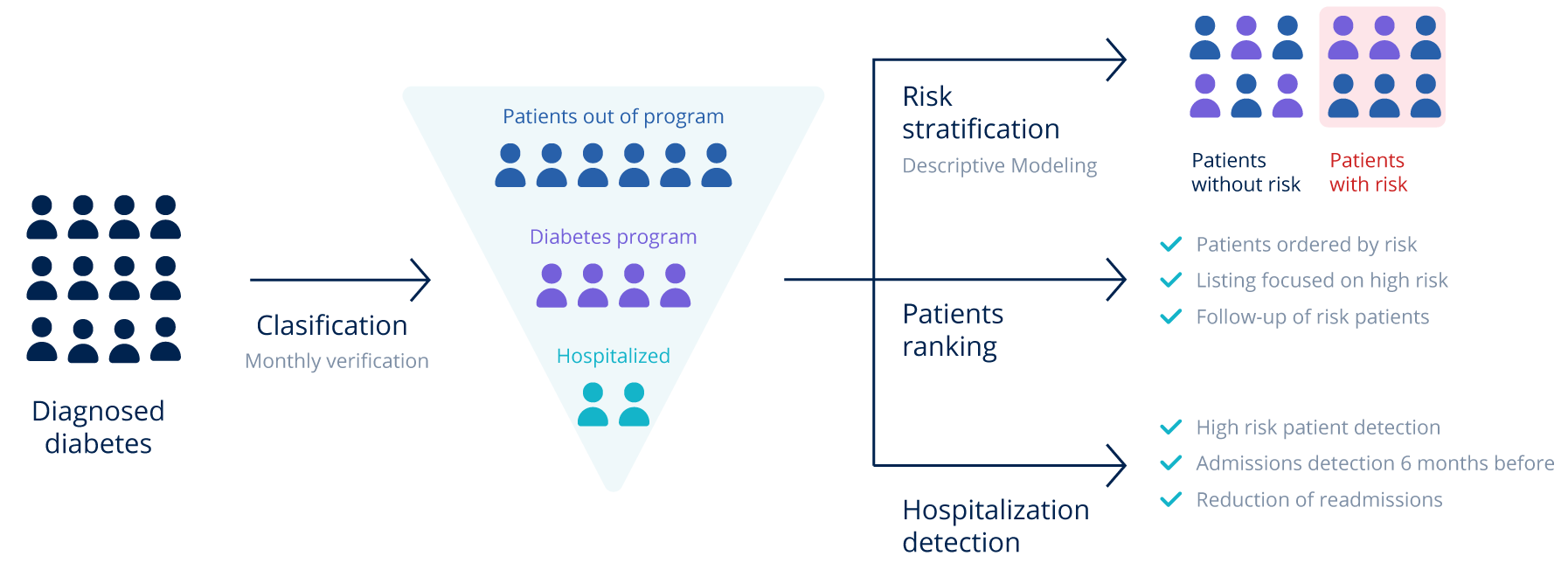

MAP OXYGEN THERAPY detection on COVID patients up to 72h 7k patients
The MAP Oxygen Therapy project is focused on detecting the need for oxygen therapy in COVID-19 patients up to 72 hours in advance, involving a cohort of 7,000 patients. This initiative uses a predictive model to analyze various health indicators and patient data to identify individuals who are likely to require oxygen support within the next three days.
The early detection capability of this model aims to enhance patient care by allowing healthcare providers to prepare and administer oxygen therapy in a timely manner, potentially improving the outcomes for patients with COVID-19. This approach underscores the importance of predictive health analytics in managing infectious diseases and highlights efforts to optimize treatment strategies and resource allocation for affected patients.
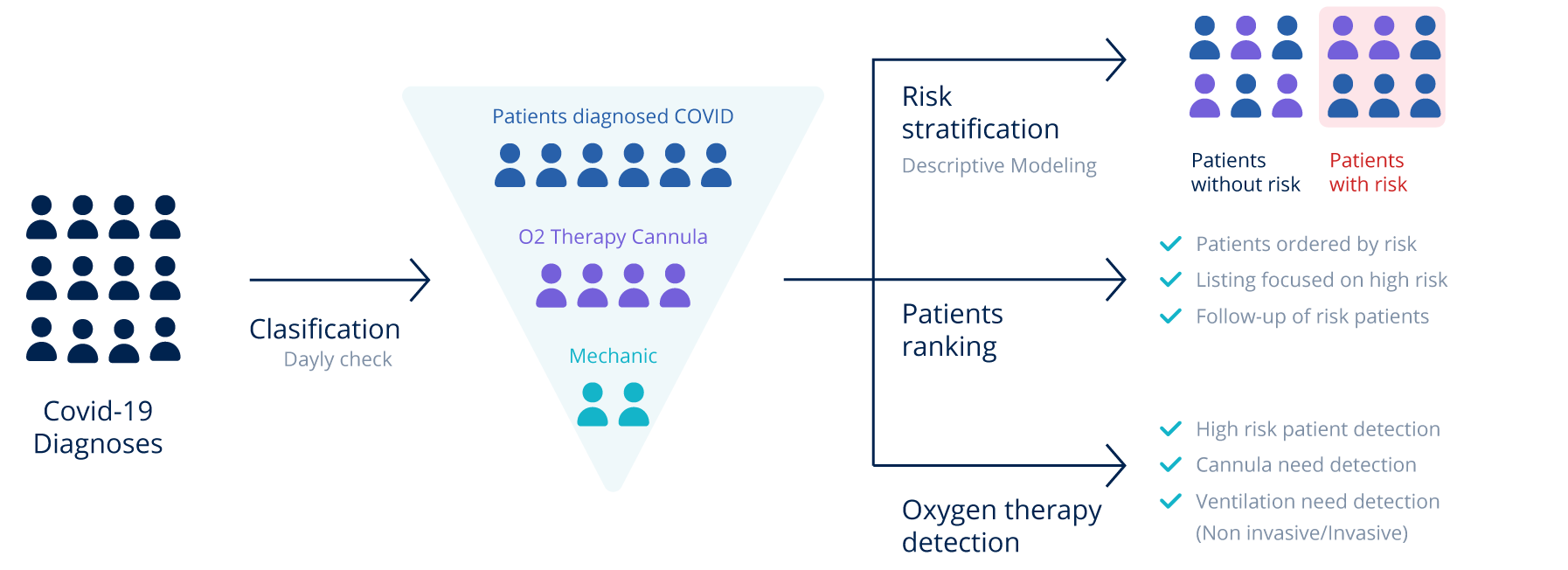

Identifying anomalous clinical courses during the screening phase of breast cancer to proactively pinpoint high-risk cases
This approach has been applied to a group of 1,500 women. An anomalous clinical course is characterized by one or more of the following criteria:
- A suspicious mammogram result, classified as BI-RADS category 3 or higher
- The patient undergoing a breast echography
- The patient undergoing a breast MRI
- The patient undergoing a breast biopsy
- The patient undergoing a breast fine needle aspiration
This methodology aims to enhance early detection strategies by closely monitoring and analyzing cases that exhibit these specific indicators. The objective is to ensure that individuals who show signs of potentially high-risk developments receive timely and appropriate follow-up care, thereby improving the chances of successful treatment outcomes.

one step forward
This initiative represents a targeted effort to refine breast cancer screening processes and improve healthcare outcomes through early intervention.

HERO

CIP
Platform

ACD
Clinical Dashboard



